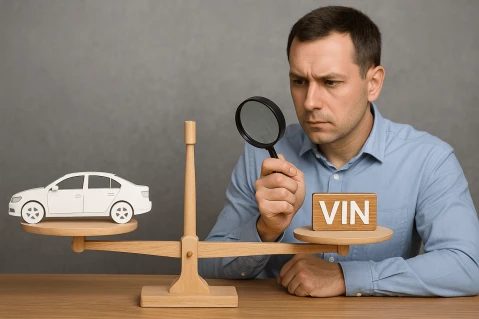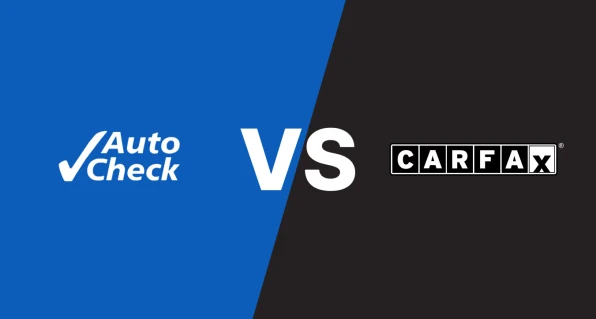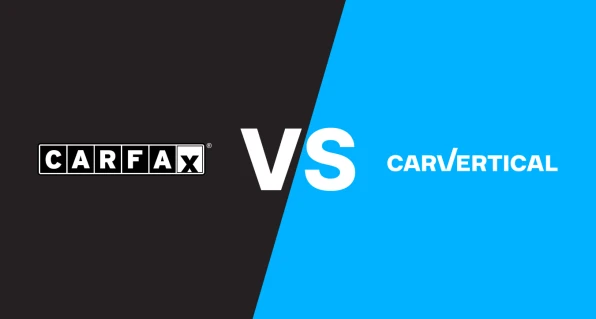Purchasing a used car should be associated with performing vehicle history reports. However, there is often a question of which tool to choose. VinCheckUp and Carfax are popular providers. They offer insights into a car's history. Both scan records to detect emergencies, service history, and red flags, but differ in cost, coverage, and data sources. We offer to examine these direct competitors. Feel free to determine which of them offers the best value.
Basic Facts About a Vehicle History Report
Who Needs to Get a Vehicle History Report

Obtaining a comprehensive history report is essential before purchasing any used vehicle. A thorough vehicle history search can save you money. Here's who benefits most:
- Used car buyers verify a seller's claims about the vehicle's condition.
- Private sellers want to establish trust with potential buyers.
- Car dealers evaluate trade-ins and verify inventory.
- Insurance companies assess the risks of buying a salvage car.
- Used car warranty providers determine coverage eligibility.
- Vehicle appraisers establish accurate market prices.
Report Comparison: VinCheckUp vs. Carfax
What Does Each Report Include?
When comparing VinCheckUp vehicle history reports against Carfax reports, understanding what each provides helps determine which offers higher value. Both instruments review many similar sources, but each has unique strengths in their reporting.
| Feature | VinCheckUp | Carfax |
| Accidents reported | Yes | Yes - More comprehensive |
| Title information | Yes | Yes |
| Odometer reading | Yes | Yes |
| Service records | Limited | Extensive |
| Previous owners | Yes | Yes - More detailed |
| Lien sale records | Yes | Limited |
| Open recalls | Yes | Yes |
| Vehicle specifications | Basic | Detailed |
| Market value estimator | Yes | Limited |
| Exclusive auction data | No | Yes |
| Total loss records | Yes | Yes |
| Bulk offers | Yes - Better value | Yes - Higher cost |
| Maintenance records | Basic | Comprehensive |
Accuracy of Data
The accuracy of vehicle history varies between providers. Carfax leverages its longer industry presence and relationships with 100,000+ data sources to capture extensive maintenance records. VinCheckUp, though a newer direct competitor, offers accurate VIN checks at lower costs, focusing on official records rather than maintenance history. Neither company guarantees 100% accuracy since both rely on information being properly reported by third parties.
Price
| Carfax Vehicle History Report | VinCheckUp Vehicle History Report | |
| Report Pricing | $44.99 (a single report)
$59.99 (two reports)
$109.99 (four reports) | $19.95 (a single report)
$29.95 (three reports)
$49.95 (ten reports) |
Customer Reviews About VinCheckUp and Carfax
We've gathered and analyzed Carfax and VinCheckUp customer reviews from various online sources to provide an objective look at user experiences. These insights are based on real feedback from buyers and sellers, not our personal opinions.
Carfax Reviews
Pros:
- Many users found that Carfax provided accurate reports, helping them avoid scams.
- Some customers were able to find detailed accident records and ownership history, even for imported cars.
- Carfax reports revealed hidden mileage rollbacks, preventing buyers from purchasing vehicles with tampered odometers.
- Unlike some competitors, Carfax lets users see if data is available before they pay.
Cons:
- Some users reported that major repairs were incorrectly documented and later removed from the report without offering consumer support.
- Reports for older cars often lack accident history and ownership details.
- While detailed, Carfax reports are significantly more expensive than alternatives.
- Some sellers using Carfax's lead generation service found that most leads were unresponsive.
VinCheckUp Reviews
Pros:
- Many users praised VinCheckUp for being cheaper than Carfax while still providing useful vehicle history information.
- The report format made it easy for users to scan key details about a car’s past.
- Some customers found detailed title history, ownership records, and theft reports, particularly for rare or specialty cars.
- Users who received incomplete reports reported that refunds were processed quickly without issues.
Cons:
- Some users found that VinCheckUp failed to report previous accidents, which were later discovered using another service.
- Unlike Carfax, VinCheckUp does not include dealership service records.
- A few users reported that certain vehicles had little to no historical data, even if they had recent title transfers.
- Some reports provided only generic or publicly available data.
Why Car Reports May Not Show All Accidents
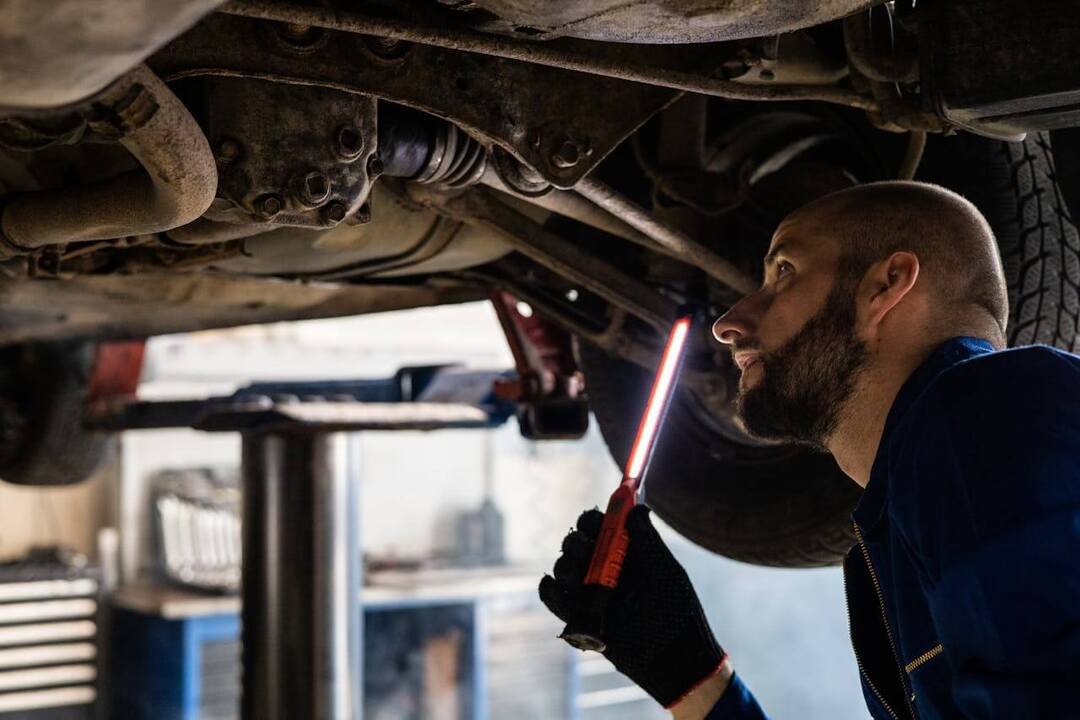
Even comprehensive history reports have limitations when documenting a vehicle's complete accident history. Understanding these gaps helps you make better decisions.
- Unreported incidents - Minor incidents without insurance claims won't appear.
- Repairs paid out-of-pocket often don't make it into records.
- Delayed reporting means recent emergencies may not yet be in the system.
- VIN information errors can cause accidents to be associated with the wrong vehicle.
- Limited access to certain regions - Some areas don't report to history databases.
- Self-repairs done by owners aren't tracked.
Why One Report Shows an Accident While the Other Doesn’t
Discrepancies between reports from different providers are common and highlight why serious car buyers often purchase multiple reports. Carfax and VinCheckUp may show different histories because they operate with different information sources. Carfax might have exclusive relationships with certain body shops that don't share data with VinCheckUp. Conversely, VinCheckUp might access some government vehicle records that haven't made it into Carfax's database.
When differences appear, it's best to assume the more comprehensive report is more accurate, though neither tool can guarantee 100% accuracy.
Does VinCheckUp and Carfax Work for Canadian and European Cars?
Carfax offers stronger international coverage, with good Canadian vehicle data through provincial partnerships, though less comprehensive than US reports. For European imports, they provide basic post-import information. VinCheckUp's non-US coverage is more limited, with partial Canadian records and minimal foreign vehicle data. For imported vehicles, reports from services in the vehicle's origin country often provide more complete history information.
How to Get a Carfax Report for Free
While Carfax typically charges for reports, there’s always a chance to access this information without direct payment. Many dealership websites provide free VIN checks. Additionally, many online car listing websites partner with Carfax to provide history reports. Another option is to request a single report from the current owner if you're buying from a seller who may have access to a full report they can share.
EpicVIN As a Free Alternative to Carfax
For those seeking a more affordable option, EpicVIN offers a compelling alternative. It balances cost and comprehensiveness. The service provides many of the same features as premium reports but at a lower price. Their basic free VIN check with a reliable VIN decoder offers a quick overview before you commit to a full report.
EpicVIN stands out as one of the Carfax competitors thanks to its NMVTIS certification. It ensures access to the same government databases that power more expensive tools. EpicVIN’s comprehensive reports excel at detecting serious issues like salvage title problems, total loss declarations, and odometer rollback.
Major Red Flags to Watch For in a Vehicle History Report
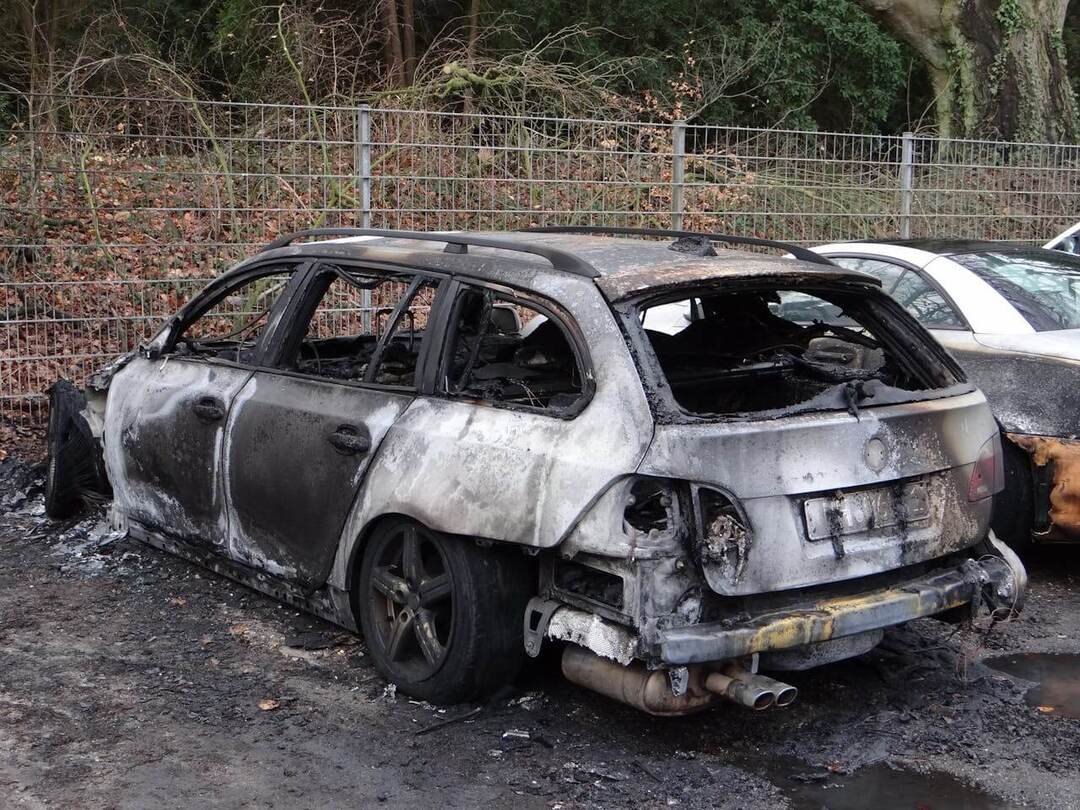
When reviewing any vehicle history report, certain issues should immediately raise concerns:
- Title washers – Evidence of unscrupulous sellers altering a car's title status.
- Salvage title or rebuilt status – Indicates the vehicle was a total loss.
- Odometer reading discrepancies – Suggest potential fraud.
- Frequent ownership changes – Often signal problems.
- Flood or fire damage – Causes long-term issues.
- Lien on a car that hasn't been resolved.
- Airbag deployments without repair records.
- Structural damage reports.
- Inconsistent maintenance history.
- Recent major repairs shortly before the sale.
How to Verify a VIN Report with Physical Inspection
Vehicle history reports should complement, not replace, physical inspection. Always verify the VIN matches and look for repair signs like mismatched paint. Consider hiring a mechanic. A specialist can identify previous damage that history reports might miss.
Further reading
Summary
When deciding between VinCheckUp and Carfax, consider your specific needs and budget. VinCheckUp offers high value for basic vehicle history information without premium prices. Their reports cover essential areas like title status, reported emergencies, and odometer verification.
Carfax provides more comprehensive options, particularly for buyers wanting detailed maintenance records. Their partnerships with service centers provide data other services may miss. However, the most cautious approach is using both tools for important purchases, as each might catch issues the other misses. Remember that even official vehicle history report providers mention some limitations, making professional inspection essential for any used car purchase.
EpicVIN is another reputable choice, providing complete reports and free VIN check options. It allows consumers to acquire significant information without prior fees.
Frequently Asked Questions
Yes, sellers can attempt to hide problems by altering a car's title status through title washing or VIN cloning. Some damage may go unreported if repairs are done without insurance claims. This is why obtaining several history reports and getting a professional inspection are vital measures to take.
Dealership websites sometimes misrepresent an accident history for several reasons. This may be either intentional or because they lack complete information. Omitting details about minor incidents is a widespread approach used by dealers. Therefore, always obtain your own report.
Not all incidents significantly impact reliability or safety. Minor fender benders properly repaired typically don't create lasting issues. However, accidents involving structural damage present higher risks of buying a salvage car with ongoing problems. Always have incident-damaged vehicles professionally inspected.
Before spending money on a report, ensure the VIN is legitimate by:
- Checking that it contains exactly 17 characters (for vehicles after 1981).
- Using a free VIN decoder to verify basic information matches the vehicle.
- Ensuring the VIN on the dashboard matches other locations (door jamb, engine).
- Verifying the format follows the standardized pattern (no I, O, or Q).
- Looking for signs of the VIN plate tampering.
Report databases typically update continuously as new information becomes available. However, there's often a delay between an incident and the time it’s reported. It may take 30-90 days for recent accidents or maintenance sessions to appear in databases.





